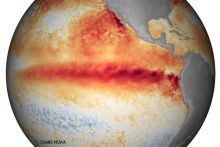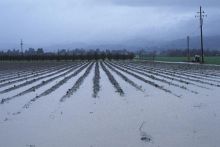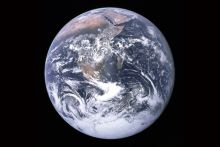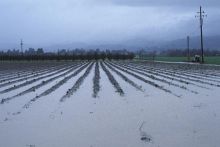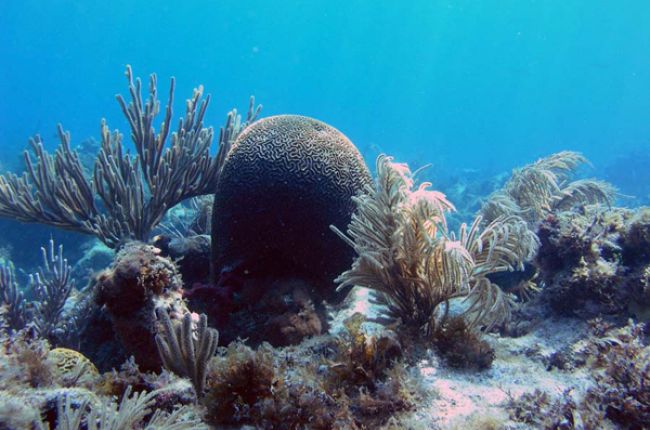
National Oceanic and Atmospheric Administration Ocean Facts:
"Ocean acidification refers to a reduction in the pH of the ocean over an extended period of time, caused primarily by uptake of carbon dioxide (CO2) from the atmosphere.
For more than 200 years, or since the industrial revolution, the concentration of CO2 in the atmosphere has increased due to the burning of fossil fuels and land use change. The ocean absorbs about 30 percent of the CO2 that is released in the atmosphere, and as levels of atmospheric CO2 increase, so do the levels in the ocean.
When CO2 is absorbed by seawater, a series of chemical reactions occur resulting in the increased concentration of hydrogen ions. This increase causes the seawater to become more acidic and causes carbonate ions to be relatively less abundant.
Carbonate ions are an important building block of structures such as sea shells and coral skeletons. Decreases in carbonate ions can make building and maintaining shells and other calcium carbonate structures difficult for calcifying organisms such as oysters, clams, sea urchins, shallow water corals, deep sea corals, and calcareous plankton.
These changes in ocean chemistry can affect the behavior of non-calcifying organisms as well. Certain fish's ability to detect predators is decreased in more acidic waters. When these organisms are at risk, the entire food web may also be at risk.
Ocean acidification is affecting the entire world’s oceans, including coastal estuaries and waterways. Many economies are dependent on fish and shellfish and people worldwide rely on food from the ocean as their primary source of protein."
Learn More:
- Ocean Acidification: The Other Carbon Dioxide Problem (Website), National Oceanic and Atmospheric Administration
Ocean Acidification research homepage for NOAA's Pacific Marine Environmental Laboratory, including information on active research, observation networks, and links to other information sources.
- Ocean Acidification: A National Strategy to Meet the Challenges of a Changing Ocean (Report), National Research Council
2010 report on the current state of understanding on ocean acidification, including effects on seawater chemistry, marine organisms, and marine ecosystems. This report also discusses socioeconomic concerns associated with ocean acidification.
- Present Day Climate Change (Factsheet), American Geosciences Institute
Factsheet summarizing how Earth's climate is monitored, influences on the climate, and evidence for present-day climate change.
- Ocean Acidification Impacts on Fisheries (Webinar), American Geosciences Institute
2016 webinar on recent and historical ocean acidification, effects on sea life, and how this is affecting U.S. fisheries.


